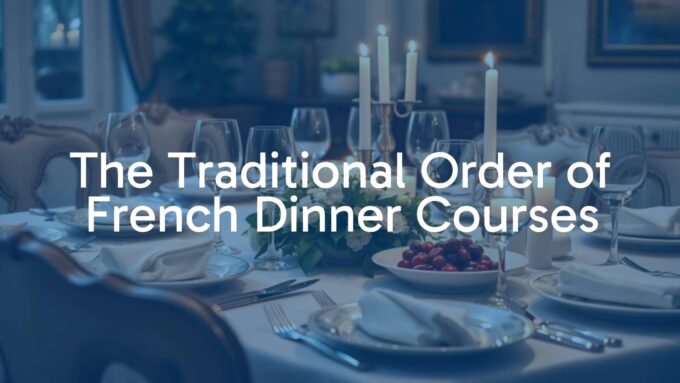Picking up basic French conversation phrases is more than just being polite-it’s a useful way to connect with French speakers and get the most from your experiences in French-speaking places. Whether you’re heading to Paris on vacation, working with French-speaking colleagues, or just hoping to chat with locals, knowing these key French phrases helps you get through everyday situations easily. It allows you to order a croissant at a bakery, ask for directions, or greet people with confidence. Making even a small effort to speak French shows respect and interest in the culture, which usually leads to friendlier responses and more real connections. You’ll quickly notice that people appreciate your effort, turning what might feel like uncomfortable moments into positive, memorable ones.
Focusing on simple conversation phrases helps you skip the stress of complicated grammar at first. You jump right into real-life speaking, which builds confidence and makes learning the language enjoyable. In this article, you’ll find the must-know French phrases to get you started, including greetings, polite words, and expressions for travel, shopping, and emergencies-so you’ll be ready to start speaking French right away.
Why Learn Basic French Conversation Phrases?
Starting with basic French conversation phrases comes with lots of perks besides just being able to talk. It opens doors to new experiences and lets you make real connections, all while helping you appreciate France’s lively culture. Imagine being able to chat with vendors in a busy French market, or making a local smile just by greeting them in their own language. These moments add up to a boost in confidence and a much richer experience wherever you go.

Using French is also practical. In many English-speaking areas, few people speak another language, so knowing French can help you stand out at work or while traveling. It shows you’re open-minded and willing to connect. Plus, experts agree that practicing speaking is one of the best ways to learn a language, making these basic phrases your first key step towards speaking French well.
When Do You Need Basic French Conversation Skills?
You’ll find basic French conversation phrases helpful in all sorts of situations. If you’re traveling, they’re needed for checking in at hotels, ordering meals, or using transport. Greeting people, asking directions, or dealing with small problems-these all require some French, especially in smaller towns where English is rare.
French phrases also come in handy at work-just saying “Bonjour” or “Merci” can show respect and make a good impression with French-speaking colleagues or clients. Even if you’re just learning for fun, talking in French can help you make new friends and enjoy French TV, songs, or books. These basic phrases form the start of any conversation and are the building blocks for talking more in-depth later on.
How Do Conversation Phrases Build Confidence?
Knowing simple conversation phrases helps you feel more sure of yourself when speaking French. When you try a phrase-no matter how basic-and the person understands, you get a little confidence boost. Each small success makes it easier to try more.
Having go-to phrases also means you worry less about speaking “perfectly.” You have something to say, so you can focus on the conversation rather than perfect sentence structure. As you see your effort working, your fear of mistakes drops and you want to keep trying. It’s like having training wheels: these sentences keep you steady until you’re ready to try more complicated things.
French Pronunciation and Being Polite
When learning French, it’s not just about memorizing words-it’s also about pronouncing them as clearly as possible and understanding the culture. Good pronunciation helps people understand you and shows you care. French sounds have a rhythm and tone, and even small changes in how you say letters can change the meaning. Respect for social rules is important, especially knowing the difference between “tu” and “vous.”
Phonetic guides are a good starting point, but listening to French speakers-whether in movies or music-helps the most. Try to copy how they talk. These efforts show that you’re really interested in learning, and French speakers notice and appreciate it.
Tips for Pronouncing Common French Sounds
French pronunciation can feel tricky at first, but it gets easier if you break it into steps. The French ‘r’ is made in the throat, very different from the English version. The letter ‘j,’ as in “bonjour,” is softer than in “John”-it’s more like the ‘s’ in “measure.” French also uses nasal vowels, like in “français” or “bonjour,” with air going through your nose and mouth.
Start by practicing key sounds. For example, the ‘u’ in “tu” is made by rounding your lips for an ‘oo’ sound but saying ‘ee.’ The ‘é’ in “café” sounds like the ‘ay’ in “say,” while ‘è’ in “mère” is like ‘eh’ in “bed.” Listen to native speakers and try to copy their mouth movements. Practicing every day, even a little bit, will help your accent improve.
Understanding ‘tu’ and ‘vous’
Choosing between “tu” and “vous” is one of the first things to learn for polite French conversation. They both mean “you,” but using the wrong one can cause confusion or even offend someone.
| When to use | tu | vous |
|---|---|---|
| Formality | Informal (friends, family, children, pets) | Formal (strangers, older people, in public or work) |
| Number | One person | One or more people |
If you’re unsure, it’s safest to start with “vous,” especially with people you don’t know well. Later, someone might suggest switching to “tu” as you get to know each other better.

Everyday French Greetings and Introductions
Greetings and introducing yourself are crucial in starting a conversation in French. These first few words show you’re respectful and ready to talk. No matter if you’re entering a shop or meeting someone new, using the right greeting helps things go smoothly.
Knowing when and how to use each greeting is important. With strangers or in formal places, “Bonjour, Madame” or “Bonsoir, Monsieur” fits best. Introducing yourself and asking questions keeps the conversation going and helps you build relationships.
Formal and Informal Greetings
Some basic greetings include:
- Bonjour! (Hello/Good morning/afternoon) – for any time before evening, formal or informal
- Bonsoir! (Good evening) – for evenings, formal or informal
- Salut! (Hi) – for friends, family, or other informal situations
- Coucou! (Hey there!) – very casual, usually with close friends or kids
French people usually greet others before asking for help or making requests, so always start with one of these phrases.
How to Introduce Yourself
- “Je m’appelle…” (My name is…)
- “Enchanté(e)!” (Nice to meet you!) – add the “e” if you are female, but it sounds the same
- To ask “What’s your name?” in a formal way: “Comment vous appelez-vous?”
- Informal: “Comment tu t’appelles?” or “Tu t’appelles comment?”
- To ask “How are you?”: “Ça va?” (informal) or “Comment allez-vous?” (formal)
These simple phrases help you start conversations and get to know people.
Polite French Words and Ways to Be Courteous
Being polite is very important in French-speaking places. Using the right polite words makes your conversations friendlier and helps you fit in better. It can make people more willing to help you and shows you respect them and their customs.
Besides just saying “please” and “thank you,” French politeness has lots of little phrases for showing gratitude, apologizing, and offering help. Learning these helps you get along in all kinds of situations.
Thank Yous, Pleases, and Apologies
- Merci – Thank you
- Merci beaucoup – Thank you very much
- Merci bien – Thanks a lot (a touch warmer or more familiar)
- De rien – You’re welcome
- Il n’y a pas de quoi – Don’t mention it
- S’il vous plaît – Please (formal)
- S’il te plaît – Please (informal)
- Excusez-moi or Pardon – Excuse me or Sorry (for minor mistakes or getting past someone)
- Je suis désolé(e) – I’m sorry (stronger apology; add “e” if you’re female)
- Excusez-moi? or Comment? – Sorry? or What? (if you didn’t hear something)
How to Make Requests and Offer Help
- “Pouvez-vous…?” (Can you…? formal) or “Peux-tu…?” (informal)
- Examples: “Pouvez-vous parler plus lentement, s’il vous plaît?” (Can you speak more slowly, please?)
- “Pouvez-vous le répéter, s’il vous plaît?” (Can you repeat that, please?)
- “Pouvez-vous m’aider, s’il vous plaît?” (Can you help me, please?)
- To offer help: “Est-ce que je peux vous aider?” (May I help you?)
- To encourage someone to go ahead: “Allez-y” (Go on/formal) / “Vas-y” (Go on/informal)
Phrases That Help You Keep the Conversation Going
After the basic greetings and introductions, the next challenge is making the conversation continue. This includes reacting, asking more questions, and using little words to show you’re listening and interested.
These phrases help you connect, ask for more details, or keep the chat moving smoothly.
How to Ask Questions
- To ask about work: “Ça va le travail?” (How’s work?), or “Tu fais quoi comme travail?” (What do you do for work?)
- About family: “Comment va ta famille?” (How is your family?), “Comment va votre famille?” (formal)
- About a specific person: “Comment va ton père?” (How’s your father?)
Always choose “tu” or “vous” based on how well you know the person.
Useful Fillers and Responses
- To reply to “Ça va?” (How’s it going?): “Ça va” (I’m good), “Je vais bien” (I’m well)
- To return the question: “Et toi?” (And you?, informal), “Et vous?” (And you?, formal)
- Other fillers:
- “Euh…” (Um…)
- “Oui” (Yes), “Non” (No), “Peut-être” (Maybe)
- “Bien sûr” (Of course)
- “Ça marche!” / “Ça roule!” (It’s ok/works for me)
- “Bon, ben…” (Well then…)
- “Du coup…” (So…/as a result…)
How to Ask and Answer Questions in French
Questions and answers are at the heart of any conversation. They help you get information, clarify, and stay engaged. Learning the basic question words in French makes it much easier to handle any chat.
Knowing how to ask and answer questions makes you more active in conversations and helps you control the flow of topics.
Key Question Words and Common Questions
| French | English |
|---|---|
| Quoi? | What? |
| Quand? | When? |
| Qui? | Who? |
| Comment? | How? |
| Combien? | How much/many? |
| Où? | Where? |
| Pourquoi? | Why? |
| Quel(le)? | Which? |
- “Quelle heure est-il? / Il est quelle heure?” (What time is it?)
- “C’est combien?” or “Ça coûte combien?” (How much does it cost?)
- “Tu viens d’où?” or “T’es d’où?” (Where are you from?)
- “Tu comprends?” (Do you understand?)
Simple Answers and Asking for Clarification
- “Oui” (Yes), “Non” (No), “Peut-être” (Maybe)
- “Je ne comprends pas” (I don’t understand)
- “Je n’ai rien compris!” (I didn’t understand anything!)
- “Je ne parle pas (beaucoup) français” (I don’t speak much French)
- “Pouvez-vous parler plus lentement, s’il vous plaît?” (Could you speak more slowly, please?)
- “Pouvez-vous le répéter, s’il vous plaît?” (Can you repeat that, please?)
- “Qu’est-ce que ça veut dire?” (What does that mean?)
Helpful Phrases for Travel, Shopping, and Eating Out
Using French in real situations-like shopping, using transport, or eating out-feels rewarding and practical once you have a set of handy phrases. These help you get around more easily and enjoy your time more fully.

From finding your way to trying local dishes, these phrases are a must for day-to-day life.
Finding Your Way and Asking Directions
- “Je suis perdu(e)” (I’m lost)
- “Où est…?” or “Où se trouve…?” (Where is…?)
- “Où est la gare?” (Where is the train station?)
- “Où sont les toilettes?” (Where are the toilets?)
- Transport terms: “le métro” (subway), “le bus” (bus), “le train” (train), “le taxi” (taxi)
- “En retard” (late), “annulé” (cancelled), “grève” (strike)
Ordering at a Café or Restaurant
- “La carte, s’il vous plaît” (The menu, please)
- “Je voudrais…” (I’d like…) (“Je voudrais un café” – I’d like a coffee)
- “Je prendrai…” (I’ll have…)
- “Qu’est-ce que vous recommandez?” (What do you recommend?)
- “Sans sucre” (Without sugar)
- “L’addition, s’il vous plaît” (The bill, please)
Shopping and Handling Transactions
- Always greet first: “Bonjour, Madame/Monsieur”
- “Le magasin” (store), “la boutique” (shop), “le marché” (market)
- “Avez-vous…?” (Do you have…?)
- “Combien ça coûte?” (How much is it?)
- “Puis-je l’essayer?” (Can I try it on?)
- “Je le prendrai” (I’ll take it)
- “La caisse” (cash register), “les espèces” (cash), “la carte bancaire” (card)
- “Ouvert” (open), “fermé” (closed), “les soldes” (sales)
French Phrases for Emergencies or When You Need Help
It’s important to know how to ask for help or explain a problem quickly. Having the right phrases ready can make a big difference in a difficult moment.
Being prepared with these sentences means you can get help fast or explain what’s wrong clearly and easily.
Getting Help Fast
- “Au secours!” (Help!)
- “J’ai besoin d’aide” (I need help)
- “Pouvez-vous m’aider?” (Can you help me?)
- “C’est une urgence” (It’s an emergency)
- “Je ne me sens pas très bien” (I don’t feel well)
- “Je suis malade” (I’m sick)
- “J’ai envie de vomir” (I’m going to vomit)
- “Où est l’hôpital?” (Where is the hospital?)
- “J’ai besoin d’un docteur” (I need a doctor)
- “Attention!” (Watch out!)
- “Faites attention!” / “Fais attention!” (Be careful! – formal/informal)
If You Don’t Understand
- “Je ne comprends pas” (I don’t understand)
- “Je n’ai rien compris” (I didn’t understand anything)
- “Pouvez-vous parler plus lentement, s’il vous plaît?” (Can you speak more slowly, please?)
- “Pouvez-vous le répéter, s’il vous plaît?” (Can you repeat, please?)
- “Pouvez-vous l’écrire, s’il vous plaît?” (Can you write it down, please?)
Ending Conversations and Saying Goodbye
Ending a conversation in a nice way is just as important as starting one. French speakers place a lot of value on polite goodbyes. Using the right closing words helps you leave on a good note and shows you care about being friendly.
Saying goodbye professionally or casually is also a part of French culture and can leave a lasting good impression.
Ways to Say Goodbye
- “Au revoir!” (Goodbye!) – works everywhere
- “Salut!” (Bye) – casual, also used to say hello
- “À bientôt!” (See you soon!)
- “À demain!” (See you tomorrow!)
- “À ce soir” (See you tonight)
- “À tout à l’heure / À plus tard” (See you later)
- “Je file” (I’m off, informal)
- “Je m’arrache” (I have to go, very informal)
- “Bonne journée” (Have a nice day)
Special Occasion Wishes
- “Bon voyage!” (Have a good trip!)
- “Bonnes vacances!” (Have a great holiday!)
- “Bon appétit!” (Enjoy your meal!)
- “Bonne soirée!” (Have a nice evening!)
- “Félicitations!” (Congratulations!)
- “Joyeux anniversaire!” (Happy birthday!)
- “Joyeux Noël!” (Merry Christmas!)
- “Bonne année!” (Happy New Year!)
Tips for Practicing and Remembering French Phrases
Learning basic phrases is just the first step-the real aim is to remember them and use them easily when you need to. To do this, practice often and find fun ways to use French in your daily life. Reading phrase lists isn’t enough: you need to hear them, say them, and use them for the words to stick.
Think of it like learning an instrument or playing a sport; repetition, practicing with different methods, and really engaging with French will help you improve quickly and remember more.
Best Ways to Remember and Use Phrases
- Learn whole sentences in real situations (like ordering coffee or greeting someone), not just words
- Practice out loud, even if you’re by yourself
- Record yourself and listen back, or compare with a French speaker
- Change your phone language, label objects in your house with French words
- Use flashcards and review them often
- Don’t be afraid to make mistakes-the more you use the phrases, the better they’ll stick
Apps and Tools For Learning
- Duolingo, Memrise, and Busuu offer short lessons, games, and exercises for vocabulary and grammar
- FluentU uses real French videos with captions for listening practice
- Babbel and Rosetta Stone give you lessons for all levels
- Watch French movies or TV shows with French subtitles, listen to French music or news
- Many free apps are available-just search “French learning” in your app store
Frequently Asked Questions about French Conversation Phrases
How many words do you need for a basic French conversation?
You don’t need thousands of words to start speaking French. Even though the French dictionary has tens of thousands, you only need around 100-300 words for simple conversations. With 100 words, you can give your name, say hello, ask basic questions, and order food. With about 300 words, you can follow and take part in a good part of everyday conversations. Most travelers manage well if they know about 750 words. It’s best to learn the words and phrases you’ll use most often.
Are these basic phrases good for absolute beginners?
Yes! These basics are perfect for people who are just starting out. Instead of jumping into grammar, beginning with phrases you can use right away makes the language less scary and more fun. Early lessons will teach you greetings, “please,” “thank you,” and how to say your name. These sentences help you feel comfortable and are a strong base to build on as you learn more French later. If you’re completely new, start here-these are the phrases that will help you get talking from day one.













Leave a comment